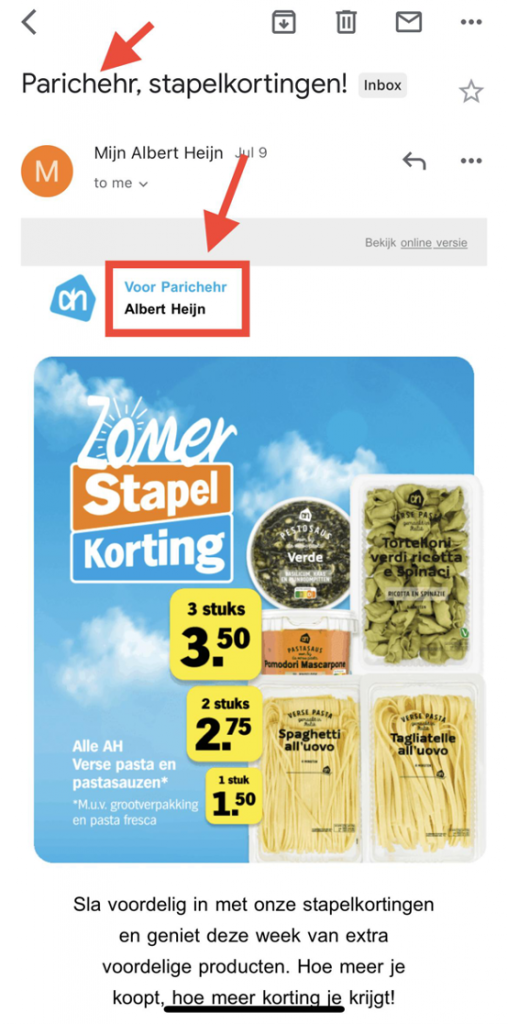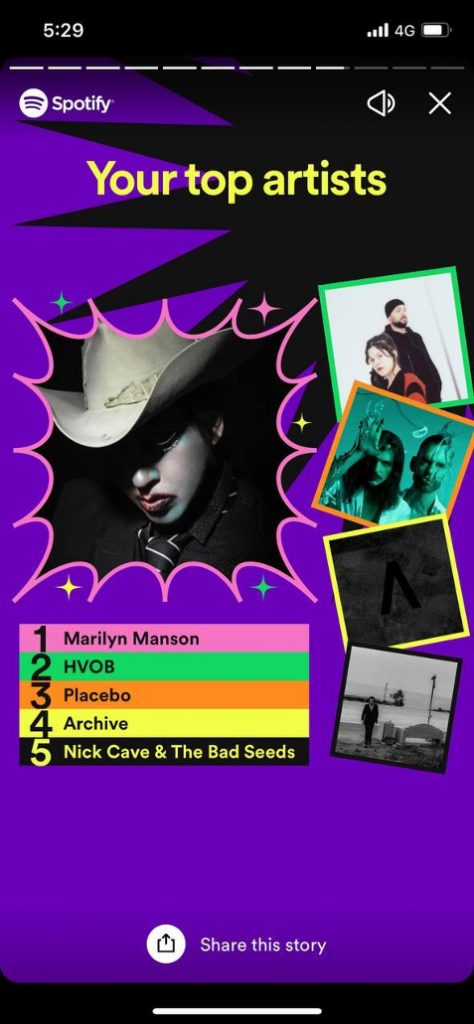Ever come across an email in your inbox or an ad on a website that made you feel like they were crafted exclusively for you? Like, you receive an email from your favorite online store, and it starts with your name. Not just a generic greeting, but your actual name. It feels like they know you personally and are speaking directly to you. As you scroll through the email, you notice that every product recommendation aligns perfectly with your interests and previous purchases from that brand.
If you’ve had such an experience, you’ve been a target of personalized marketing.
Today, we will explore the potential of personalized marketing and see how you can increase loyalty in marketing. Whether you’re a visionary small business owner or a seasoned marketing professional, let’s see how personalized marketing can improve your customer relationships.

What is Loyalty Marketing?
As the name suggests, loyalty marketing is a customer-centric strategic marketing approach that revolves around building strong relationships with existing customers to keep them coming back for more. Instead of just chasing new prospects and potential customers, you can employ a loyalty marketing strategy to invest in nurturing and retaining your current customers.
Loyalty marketing aims to create a win-win situation where customers feel valued and motivated to continue their relationship with your business, while you benefit from their long-term support and engagement.
There are several ways to make this happen; the idea is to retain your customers through incentives and enticing rewards to encourage repeat purchases, fostering a sense of loyalty and appreciation. One great way to do this is through a personalized marketing strategy.
What is Personalized Marketing?
Personalized marketing goes beyond a one-size-fits-all approach. It’s all about going the extra mile to understand each customer’s unique interests, behaviors, and preferences using the data available to you. By offering personalized experiences, you can forge deep connections with your customers, foster their loyalty, and pave the way for long-term success.
The forms that personalized marketing can take are endless. For instance, take those clever email campaigns that analyze your purchase history and recommend related products that you might love.
Or those sneaky retargeting ads that pop up on your screen, showing you the exact items you were eyeing on a website just moments ago, giving you a message like “Hey, we noticed you liked this, and we think you’ll love these too!”

The whole purpose of personalized marketing is to make your customers feel special and valued, because let’s face it, we all love a bit of personal attention. And when customers feel understood and appreciated, they’re more likely to become not just one-time buyers, but loyal advocates who will stick with you through thick and thin.
Why is Personalized Marketing Important for Customer Loyalty?
Let’s take a moment to understand why personalized marketing is necessary for customer loyalty and retention. How would you feel if you walk into a store where the employees know your name, your favorite products, and even your preferences?
Loyalty builds advocacy which then leads to a growth in brand awareness. Loyal customers become your biggest advocates, spreading the word about your business and coming back for more. By delivering personalized experiences, you’re not just selling products or services; you’re creating an emotional bond that goes beyond transactions. And that bond is what keeps customers coming back, recommending you to their friends, and leaving glowing reviews.
According to a study by Semrush, 88% of people had the highest level of trust in a brand when a friend or family member recommended it. So personalized marketing can lead to loyalty, and loyalty is the door that opens to word-of-mouth marketing. Call it hitting two targets with one arrow: increasing customer retention on the one hand and gaining new customers on the other.
What are the Benefits of Personalized Marketing?
Here are some of the key benefits you should know:
1. Increased Customer Loyalty
When you impress your customers with your personalized campaigns, they feel respected and valuable. They tend to spend money on your products or services because they think you care about their preferences. This is how you build up meaningful relationships with your customers, which can lead to increased customer loyalty and increased customer retention.
2. Better Customer Satisfaction
Personalized marketing can also result in better customer satisfaction as it provides a more tailored customer experience. When they get the feeling that their needs and preferences are being taken care of, they are more likely to be happier with your brand and continue spending money on your products or services.
3. More Conversion Rates
It can happen at times that your new leads choose some items from your products or keep checking your website for an offer on your services but do not take action. Sending personalized emails regarding the items they have chosen or some small discount offers can convert them from mere visitors to actual customers. The reason is that they find tailored messaging valuable and somehow irresistible to ignore.
4. Higher Customer Lifetime Value
Given that personalized marketing can result in customer loyalty, customer satisfaction, increased email open rates, and higher retention rates, the customer lifetime value tends to increase as well. This is because tailored messaging and personalized offers can unconsciously persuade your customers to remain to be customers for a longer period of time. Higher customer lifetime value means that you can enjoy higher revenue for a longer time span per customer.
5. Competitive Advantage
Let’s face it, whatever business you are having, the marketplace for your products or services is crowded. To stand out among the crowd, one thing you can do is offer your customers a more personalized experience with your brand. This way, you gain more loyalty and it is less likely that your customers prefer a competitor over you.
Given all these benefits, you now have a better picture of what you can expect as a result of doing personalized marketing which can help you decide to adopt such a strategy.
How to Build Customer Loyalty in Marketing?
Personalized marketing has the power to transform customer experience in numerous ways. By delivering content that is more relevant and customized, you can create an engaging and meaningful journey for your customers.
Let’s explore some key ways in which personalized marketing can enhance the customer experience:
1. Tailored Content
With personalized marketing, you can deliver content that truly resonates with customers. By harnessing data and insights about each customer’s interests and preferences, you can customize your messaging and offers, resulting in a more individualized experience.
Here is an example of how Amazon uses tailored content by offering relevant products that I tend to order every once in a while or I have tried to order at some point but left the shopping cart:

Source: Amazon.nl
2. Precise Targeting
Using precise targeting, you can connect with the right customers at the right time with the right message. By leveraging data and insights about customers’ buying journeys and preferences, you can deliver targeted content that strikes a chord with customers, motivating them to take action.

The above screenshot is a good example of precise targeting. It’s an email specifically made “for me” from the supermarket I usually do my groceries, telling me about the best weekly discount offers.
3. Effective Communication
Foster better communication between you and your customers by creating a more customized and relevant interaction. When you provide content that speaks directly to each customer, it establishes a stronger emotional connection and builds trust.
Spotify’s ‘Discover Weekly’ playlist is an awesome example of this:

4. Enhanced Satisfaction
Personalized marketing contributes to higher levels of customer satisfaction by offering tailored and captivating experiences. When customers feel understood and valued by a business, they are more likely to be satisfied with their overall experience, increasing the chances of becoming loyal, repeat customers.
5. Boosted Loyalty and Retention
This marketing strategy plays an important role in loyalty in marketing by cultivating lasting relationships between you and your customers. By delivering a personalized and engaging experience, you can foster loyalty, encouraging customers to continue their association with your brand for a longer period of time.
By leveraging these strategies, you can create exceptional customer experiences that leave a lasting impact and result in loyalty in marketing.
What Data Should You Collect for More Loyalty in Marketing?

Let’s now take a look at what kind of data you should collect for more loyalty in marketing:
- Behavioral Data: To get the scoop on customers’ online habits, you should track their browsing behavior, search history, and purchase records. By digging into this data, you can uncover valuable patterns and preferences, which then inform personalized recommendations and tempting offers.
- Demographic Data: You can also take a peek at customers’ age, gender, location, and income to paint a vivid picture of their unique characteristics. Armed with this knowledge, you can craft messages and offers that resonate on a personal level.
- Customer Feedback: Seek feedback through surveys, reviews, and social media interactions. By listening to your customers, you can gain insights into areas where personalization can be further improved, making the experience even more tailored.
How to Implement Personalized Marketing?
Implementing each marketing strategy is a project with its own project scope that you need to manage until you achieve your desired goals. Using process mapping tools, you can visually depict your marketing processes, identify inefficiencies, and optimize your workflows. All your marketing team members should stay on the same page in following the strategies in order to make your marketing efforts work. Let’s explore some of these strategies:
1. Collect Data
To kick-start personalized marketing, you need to first gather data about your customers’ interests, preferences, and behaviors. As we mentioned in the previous section, you should collect specific data from various channels to build a customer data source for your marketing strategies.
Massive companies like YouTube do data collection through behavioral algorithms. When you watch YouTube videos, you get similar video suggestions from YouTube:

2. Do Data Analysis
Once the data is in hand, you can employ data analysis techniques to draw patterns and trends. Use machine learning algorithms and predictive modeling to analyze the data you have collected. These methods can help you gain insights to fuel your marketing efforts.
3. Create Customer Segments
You can now create customer segments that reflect unique groups with different needs and preferences because you have a collection of valuable data. Creating these segments allows you to tailor your marketing strategies to each group’s specific desires. This is how you can provide a customized experience.
4. Craft Personalized Content
With customer segments in place, it’s time for you to create personalized content that speaks directly to each group’s preferences. This can include delightful product recommendations, tempting discount offers, precisely targeted email marketing campaigns, and website content that feels like it was crafted just for them. You can also integrate text-to-speech functionality into your content creation process allowing your audience to consume the personalized content in a dynamic and engaging audio format.
5. Do Automation
To make the process more efficient, you can call upon the aid of marketing automation tools. There are so many automation tools out there you can make use of, thanks to the digital transformation era we are living in. These tools come in different shapes and forms, including email marketing automation, mobile marketing automation, Instagram automation and CRM automation. In general, they automate the delivery of personalized content, analyzing customer behavior and preferences.
Automation of some tasks saves you time to focus more on the part of the job that can’t be automated, such as coming up with strategies to make personalized content more catchy and engaging.
7. Measure Results
Last but not least, you also need to measure the results of your personalized marketing endeavors. By delving into data on customer engagement, retention rates, and conversion rates, you can fine-tune your marketing strategies and make them more effective.
Real-Life Example of Personalized Marketing Strategy
Let’s now explore a successful example.
Starting in 2016, Spotify has been curating a personalized compilation for each of its users, showcasing an overview of their musical journey throughout the year. This annual personalized marketing campaign is known as Spotify Wrapped. If you are a musicoholic, you would definitely know which campaign we are talking about.
#spotifywrapped is an annual list that reveals how many minutes users have spent listening to music on Spotify, their most played songs, preferred music genres, their music listening personality, top artists, and a playlist featuring their top 100 songs.
And yet the cherry on top? Users can easily share all these exciting details and their awesome playlists on social media platforms.

Source: Spotify
The #spotifywrapped campaign holds significant value for Spotify not just because of its viral potential, but also because it leverages the power of personalized marketing. By providing users with a personalized recap of their musical year, Spotify taps into the desire for personalized experiences and content. This tailored approach creates a sense of connection and relevance, fostering a stronger bond between Spotify and its users.

Source: Spotify
The #spotifywrapped campaign gains increasing popularity year after year because it offers a truly personalized experience for each user and provides highly shareable content. As a result, users are compelled to share it with their followers and friends, giving them a glimpse into their unique musical preferences.

Source: Spotify
Conclusion
Achieving customer loyalty in marketing can be time-consuming and difficult if you don’t focus your efforts on the right marketing strategy. Now that you know about personalized marketing, you can start implementing relevant strategies to build loyalty and a better customer experience that can result in the success of your business. Wish you the best of luck!























Leave a comment!